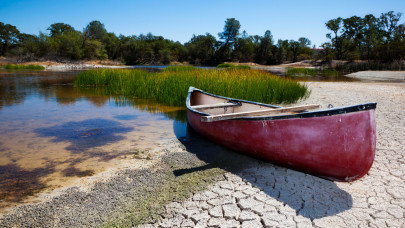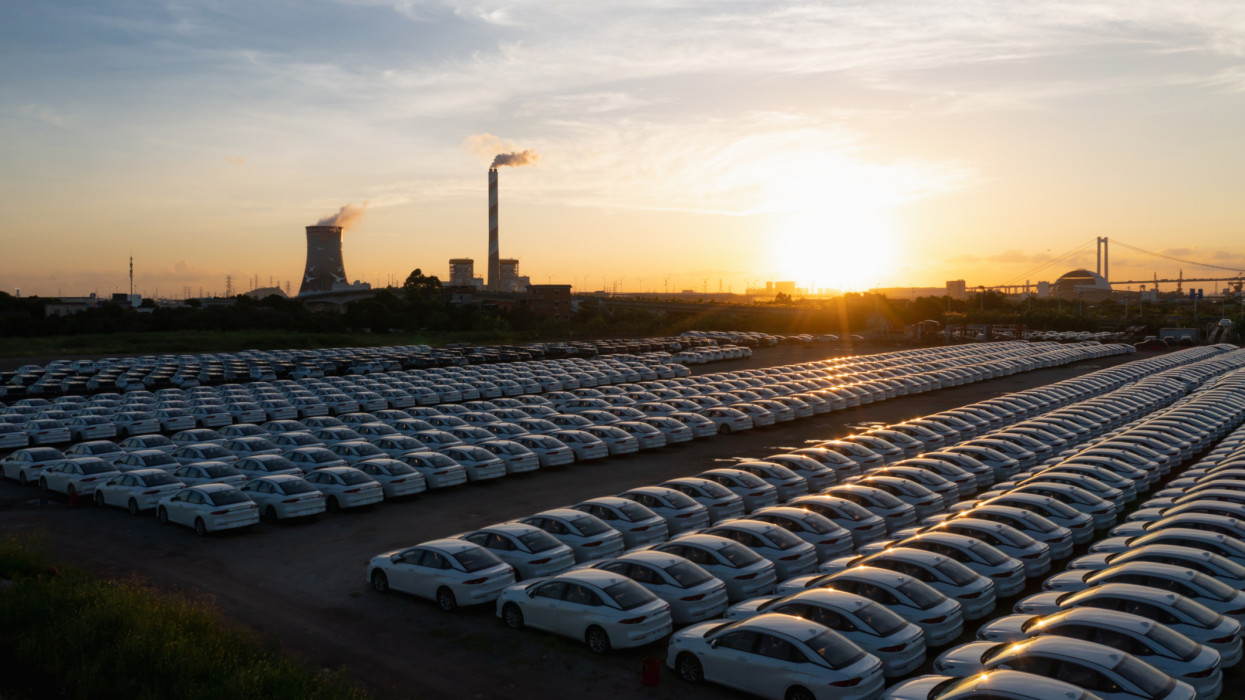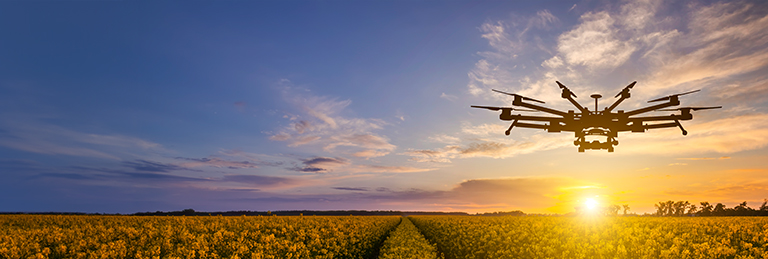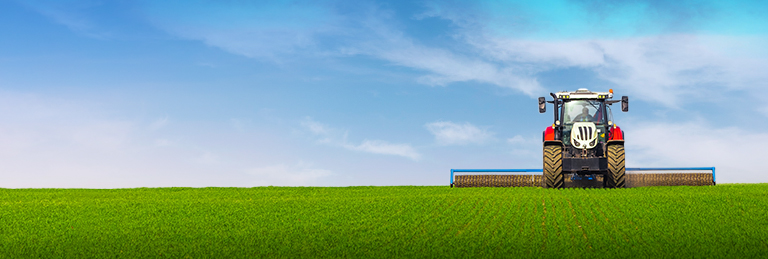Soil is the support system for nutrients, biodiversity, water, and organic matter, which are all essential for food production. This makes farmers the "custodians of the soil". They depend on it, while having the power to protect it and use it in a sustainable way.
Sustainability and soil
A sustainable management of natural resources has become fundamental in agriculture, especially when fighting climate change, preserving biodiversity and maintaining the environment. Water and soil are the primary resources used in agriculture, and are closely linked, as the quality and quantity of the water used in agriculture will affect the soil. A rounded approach is therefore necessary.
At a European level, the common agricultural policy has put in place various instruments to promote a sustainable use of soil. The principal of cross-compliance links direct payments to compliance by farmers with basic standards on the environment and climate, food safety, animal and plant health, animal welfare and maintaining land in good agricultural and environmental condition. It therefore sets a baseline for agri-environment measures, and encourages sustainable soil usage.
The direct payments available to farmers can also be linked to their compliance with so-called greening measures, which can also contribute to the conservation of good quality soil. These measures, which account for 30% of direct payments, require farmers to diversify crops, maintain permanent grassland and to dedicate 5% of arable land to 'ecological focus areas'. These actions contribute to making soil more resilient, conserving soil carbon and protecting biodiversity.
Soil protection is also in rural development programmes, funded by the European agricultural fund for rural development and managed by member states themselves; the promotion of resource efficiency and restoring, preserving and enhancing ecosystems related to agriculture are two of the six key priority areas for rural development, and soil is clearly a significant part of this.
These measures have proven their positive impact. Recent work carried out by the European Commission's Joint Research Centre concluded that between 2000 and 2010, the rate of soil erosion has decreased by 9% in total and by 20% in arable land.
The sustainable use of water and soil go hand in hand and the European Commission is investing in this area. A task force on water and agriculture was announced in February 2017, hoping to boost investment and spread best practices to improve water sustainability in Europe. As a follow up, a knowledge hub on water and agriculture is being set up, and should be fully operational by the end of 2018. It will link and integrate existing sources of information as well as generating new knowledge. Offered in the form of an internet portal, it will be widely accessible to the European Commission, member states' administrations, and stakeholders to identify the most pressing problems and enable the development of adequate policy tools for agriculture.
Research and innovation
Research and innovation is also focusing on soil management. As part of the Horizon 2020 programme, €56 million has been invested in projects relevant to soil management in the period of 2014-2017. For example, SOILCARE was funded under this programme with an EU contribution of €983,450. The aim of this project is to identify and evaluate promising soil-improving cropping systems and agronomic techniques to increase sustainability and profitability. To do this, a trans-disciplinary approach will be used to evaluate advantages and disadvantages of a new generation of soil improving cropping systems taking into account bio-physical, socio-economic and political aspects. Under the new Horizon 2020 Work programme 2018-2020, another €100 million will be invested in soil relevant research.
The agricultural European Innovation Partnership (EIP-AGRI) is also working on soil. Several focus groups, which consist on expert groups that propose orientation for future projects, are working on soil either directly or indirectly. For instance, one of these groups has produced a brochure on 'Soil organic matter matters'. In addition, operational groups are also working on this issue, with around 5% of all operational groups working on soil management. These groups work on innovative projects. For example, an EU-funded operational group in the UK is working on 'Cover crop management for improved soil biology'. It is seeking to compare the impact of different methods of cover crop - a crop grown for the protection and enrichment of the soil - management on soil biology.
The future CAP and soil management
The current common agricultural policy offers various instruments to push for more sustainability, tackle climate change and preserve the environment. Environmental care, climate change action, and landscapes and biodiversity preservation are three of nine key priorities of the future CAP as recently highlighted by the communication on the future of food and farming. The future CAP will help the sustainable management and efficient use of our soil using an evidence-and performance-based approach, underpinned by digitisation.
For example:
The new ‘conditionality' framework of the future CAP supports improved soil quality and protection, and increased carbon sequestration through better land use and cover management. Farmers must comply with good agricultural and environmental conditions (GAECs), linked to their direct income support. Soil specific GAECs include protection of peatlands and wetlands, crop rotation (replaces crop diversification), minimum land management under tillage to reduce soil degradation, and soil cover. In addition, there is now a compulsory GAEC requirement for all farmers to use the Farm Sustainability Tool (FaST) for developing their nutrient management plans. The tool compiles information such as satellite data, soil sampling and land parcel information to help farmers make informed and targeted decisions on their nutrient requirements.
The future of CAP also incorporates a new and innovative voluntary framework under Pillar 1 and Pillar 2. Pillar 1 ‘eco-schemes' and Pillar 2 ‘agri-environment-climate measures' incentivise and/or reward farmers and beneficiaries for voluntarily going beyond the mandatory requirements of ‘conditionality' as a means of enhancing their environmental and climate performance. Each member state designs these schemes in line with their local needs and conditions. Enhanced management of permanent pastures, organic farming, afforestation and the creation of woodlands, agroecology and agroforestry, precision farming, are just some examples of beneficial soil farming practices that member states could offer.
Digitisation is a crosscutting objective of the future CAP and plays a central role in helping achieve the ambitious goals of the future CAP. Digitisation aims to optimise soil fertility and reduce pollution by supporting better farm management and using the right amount of inputs in the right place at the right time. Precision agriculture involves using digital techniques for monitoring and accurately optimising agricultural production processes to maximise yields using fewer inputs (e.g. fertilisers and pesticides).
Collectively, the future CAP will support better agronomic and environmental performance of farms through a more targeted, ambitious, and flexible approach that gives the responsibility to member states to design a mix of schemes that meet EU-level environmental and climate objectives. As the schemes will be tailored to local needs and conditions this will help create favourable conditions for improving soil fertility and structure, reducing soil erosion and desertification, better nutrient management, and enhancing soil carbon storage.
Via ec.europa.eu








